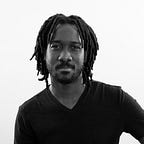Cynthia Nixon Loses New York Primary, But Wins in Harlem
Story by Dalia Saavedra
Last week, nearly 1.5 million New Yorkers cast their votes to elect a Democratic candidate for the gubernatorial election in November. Shortly after polls closed, incumbent Andrew Cuomo was announced winner against actress and activist Cynthia Nixon. Though she won just under 35 percent of the vote, in Harlem, the actress and activist won plenty of respect and goodwill for her progressive stances on a number of issues.
Amber Eby, a Harlem high school teacher who voted at the Harriet Tubman Learning Center at around 3 p.m., confessed that she chose Nixon to combat business as usual. “I’m over Cuomo. We need someone who advocates for a more progressive state,” said Eby. “We can’t afford to go with the flow anymore. This is what a lot of people did during the presidential campaign and look who we’re stuck with now.”
The contentious run up to primary day brought out a large number of voters. The turnout this year was significantly higher than in previous gubernatorial primaries. According to The New Republic, 574,260 people voted in 2014, which compared to this year when 1,455,028 people went out of their way to vote — nearly triple the number of four years ago.
Throughout her campaign, Nixon advocated to improve the MTA system, legalize marijuana, increase aid for low-income school districts, and fight for LGBTQ rights as well as solve issues such as gender and income inequality. Her progressive campaign captivated her supporters.
A Nixon supporter, who wished to remain anonymous, voted at PS 153, an elementary school located in Amsterdam Avenue. Her 20-year old daughter decided not to vote because she had a lot going on. The Nixon supporter said, “my daughter will regret it twenty years from now, and when she does decide to care, it’ll be too late.”
Among other things, the Harlem voter praised Nixon for her courage: “Nixon is very brave to go against someone like Cuomo who has the experience, wealth, and also the legacy,” she said.
In just a couple of months Nixon has been able to challenge as well as change many of Cuomo’s beliefs. Cuomo labeled marijuana a “gateway drug” just about a year ago but no longer opposes its legalization. He also recently proposed a ban on the use of plastic bags and promised to reimpose voting rights to criminals, initiatives which are both supported by Nixon.
Jasmine Boothe, a senior at The City College of New York, believes that regardless of her loss, Nixon accomplished plenty despite her lack of political experience and funds. “There’s only six female governors in America. Nixon should’ve been the seventh,” says Boothe. “She was clearly at a disadvantage. But she stepped up and ran a hopeless race. I’m proud of her.”
Nixon might have lost the battle but not the war. Her concession speech sounded like a rallying cry: “As long as New York remains the single most unequal state in the country, we will keep fighting,” she promised.
Edited by Mikhael Simmonds.
